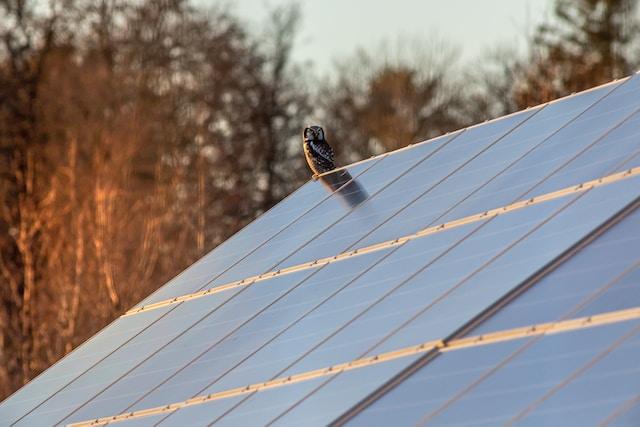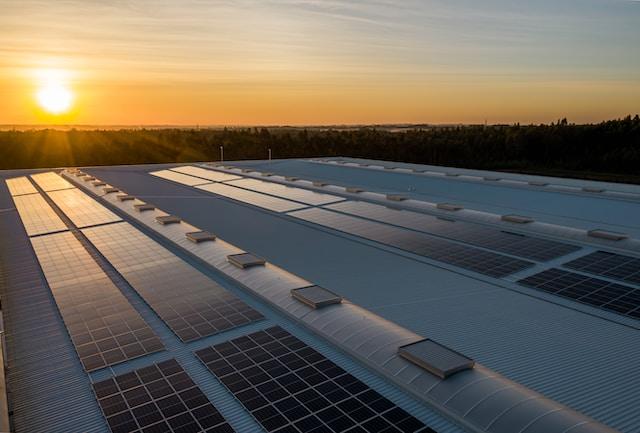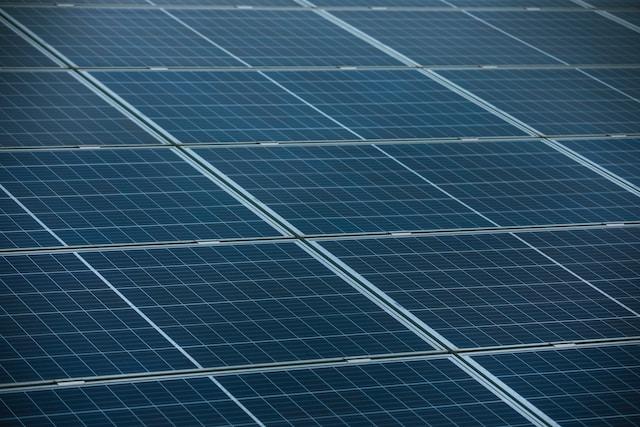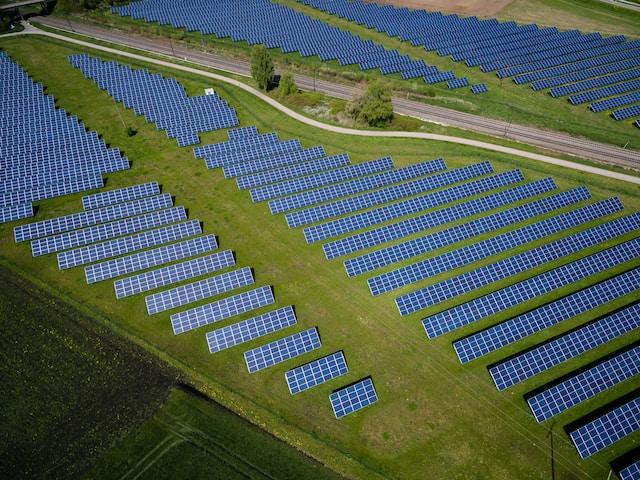
Top Benefits of Solar Panels: A Comprehensive Guide to Going Green
Introduction
Solar panels have gained immense popularity in recent years, with more and more homeowners and businesses recognizing their potential to generate clean, renewable energy. As the world shifts towards sustainable solutions, solar panels stand out as a leading alternative to traditional energy sources. This growing interest in harnessing the sun's power is largely driven by the numerous benefits they offer, including cost savings, environmental advantages, and increased energy independence. Our comprehensive guide aims to provide you with valuable insights into the top benefits of solar panels, so you can make an informed decision about joining the green energy revolution. From financial perks to environmental impacts, we'll cover everything you need to know about this sustainable technology, ultimately helping you determine if solar panels are the right choice for your home or business.
Financial Benefits
One of the most significant advantages of installing solar panels is the potential for long-term cost savings on energy bills. When comparing the costs of electricity generated from traditional sources with those of solar power, it's clear that solar energy can provide substantial savings over time. Although the initial investment in solar panels may seem high, the break-even point can be reached in just a few years, with homeowners and businesses enjoying ongoing reductions in their energy expenses. In fact, solar panels often pay for themselves by offsetting or eliminating electricity costs, making them a worthwhile investment. In addition to the potential savings on energy bills, government incentives and tax credits further enhance the financial benefits of solar panels. Various federal, state, and local programs are available to homeowners and businesses, providing financial assistance in the form of tax breaks, rebates, and grants. These incentives can significantly reduce the upfront cost of solar panel installation, making the switch to solar power more affordable and attractive. To take advantage of these incentives, it's essential to research the programs available in your area and consult with a solar installation professional who can guide you through the application process. Another financial benefit of solar panels lies in the increased property value they bring. Studies have shown that homes with solar panels tend to sell at a premium compared to those without, reflecting the growing demand for energy-efficient properties. Installing solar panels is an investment in your property that can lead to a higher resale value, as potential buyers recognize the advantages of owning a solar-powered home, including lower energy bills and reduced environmental impact. In some cases, the increase in property value may even surpass the initial cost of the solar panel system. In summary, solar panels offer a wide range of financial benefits that can make them a smart investment for homeowners and businesses alike. By reducing long-term energy expenses, offering attractive government incentives and tax credits, and increasing property values, solar power is an economically viable and eco-friendly solution for those looking to save money and contribute to a sustainable future. Embracing solar energy not only helps you cut down on your energy bills, but it also provides a tangible return on investment, ensuring that going green is as financially rewarding as it is environmentally responsible.
Environmental Benefits
Solar panels offer numerous environmental benefits, making them an ideal choice for those looking to minimize their carbon footprint and contribute to a healthier planet. One of the most significant advantages of solar power is its ability to reduce greenhouse gas emissions. When comparing traditional energy sources, such as coal and natural gas, with solar energy, the difference in emissions is striking. Solar panels produce clean, renewable energy with virtually no air or water pollution, greatly reducing the carbon footprint of homes and businesses that choose to adopt this green technology. By transitioning to solar power, individuals and organizations can directly contribute to the fight against climate change and help mitigate its harmful effects. As a sustainable energy source, solar power is both renewable and abundant. Unlike fossil fuels, which are finite and cause significant environmental damage during extraction, transportation, and combustion, the sun's energy is inexhaustible and readily available. By harnessing solar power, we can reduce our dependence on non-renewable resources and move towards a more sustainable future, in which energy is generated with minimal harm to the environment. Solar panels can provide electricity for decades, and once they reach the end of their lifespan, many components can be recycled or repurposed, further contributing to the circular economy. The manufacturing process of solar panels and their installation have minimal environmental impact compared to traditional energy production methods. Advances in technology and production techniques have led to increasingly eco-friendly manufacturing practices, with companies striving to reduce waste, conserve resources, and minimize their carbon footprint. During installation, solar panel systems require little to no alteration to the surrounding environment, and their low-profile design allows them to blend seamlessly into various settings, whether on rooftops, ground mounts, or even floating solar farms. Furthermore, many solar installers prioritize sustainable practices, using recyclable materials and ensuring responsible waste disposal. In conclusion, solar panels provide a host of environmental benefits that make them an attractive option for those seeking to reduce their carbon footprint and contribute to a greener, more sustainable world. By significantly reducing greenhouse gas emissions, harnessing an inexhaustible source of clean energy, and minimizing environmental impact during production and installation, solar power stands out as a responsible choice for the future of energy generation. By choosing to invest in solar panels, individuals and businesses can actively participate in the global effort to combat climate change and protect our planet for future generations.
Energy Independence and Reliability
Solar panels provide a unique opportunity for energy independence and reliability, offering several advantages over traditional grid-connected power sources. By reducing reliance on the grid, homeowners and businesses can avoid the inconveniences and risks associated with power outages and price fluctuations. Traditional energy consumers often experience interruptions in their power supply due to natural disasters, equipment failures, or grid maintenance, which can be both disruptive and costly. Solar panels, on the other hand, can help maintain a consistent energy supply, providing greater stability and peace of mind for those who choose to invest in this renewable technology. Another benefit of solar panels is the potential for energy self-sufficiency. With the right combination of solar panel systems, net metering, and energy storage options, it is possible to generate enough electricity to power your home or business entirely from the sun. Net metering allows solar panel owners to send excess electricity back to the grid, effectively spinning their electric meter backward and earning credits that can be applied to future energy bills. This process helps to offset any electricity used during times when solar panels are not producing enough power, such as at night or during cloudy weather. Energy storage solutions, such as home battery systems, can further enhance the self-sufficiency and reliability of solar power. By storing the electricity generated by solar panels during peak production hours, these systems enable you to use solar power even when the sun isn't shining. This stored energy can be used to power your home or business during grid outages, ensuring uninterrupted electricity supply and greater resilience in the face of unpredictable events. By achieving energy self-sufficiency, solar panel owners can gain independence from energy corporations and the price fluctuations associated with traditional power sources. As energy prices continue to rise and the cost of solar panel systems decreases, the economic case for solar energy becomes even more compelling. Investing in solar panels allows individuals and businesses to lock in their energy costs, providing long-term financial stability and protection against rising energy prices. In summary, solar panels offer unparalleled energy independence and reliability, enabling homeowners and businesses to reduce their reliance on the grid and potentially achieve self-sufficiency. By utilizing solar energy, net metering, and energy storage options, it is possible to enjoy a consistent power supply, free from the disruptions and uncertainties of traditional energy sources. As solar panels continue to gain traction, they represent a promising path towards a more resilient and sustainable energy future.
Technological Advancements and Future Possibilities
Solar energy is a rapidly evolving field, with ongoing technological advancements driving improvements in efficiency and opening up new possibilities for the future. One of the most notable advancements in recent years has been the increased efficiency of solar panels. Innovations in photovoltaic (PV) technology, such as the development of perovskite solar cells and the use of bifacial panels, have led to significant improvements in solar energy conversion rates. As solar panel efficiency continues to improve, homeowners and businesses can expect to generate more electricity from smaller, more aesthetically pleasing systems, ultimately enhancing the return on investment for solar power installations. In addition to the improvements in solar panel efficiency, the integration of solar energy with other emerging technologies, such as smart homes and electric vehicles (EVs), is poised to revolutionize the way we live and consume energy. Solar power plays a crucial role in the development of smart home systems, which use automation, sensors, and data analytics to optimize energy consumption and management. By integrating solar panels with smart home technology, homeowners can monitor and control their energy use more effectively, maximizing the benefits of solar power and reducing their overall energy costs. Similarly, the rapid growth of the electric vehicle market has created exciting opportunities for solar energy integration. Solar panels can be used to charge EVs, either directly through solar carports or indirectly by providing power to home charging stations. This sustainable approach to EV charging not only reduces the environmental impact of transportation but also helps to relieve pressure on the grid during peak hours. Moreover, the emerging concept of vehicle-to-grid (V2G) technology, which enables EVs to discharge stored energy back to the grid when needed, offers the potential for even greater synergy between solar power and electric transportation. As these technological advancements continue to reshape the solar energy landscape, the possibilities for a cleaner, more efficient, and interconnected energy future become increasingly apparent. By embracing solar power and supporting the integration of renewable energy with other cutting-edge technologies, individuals and businesses can contribute to a more sustainable world while enjoying the numerous benefits that these innovations have to offer. With greater efficiency, seamless energy management, and exciting new applications on the horizon, solar power is set to play an increasingly prominent role in our lives, driving positive change for both the environment and the economy.
Conclusion
In conclusion, solar panels offer a multitude of benefits, including financial savings, environmental advantages, energy independence, and compatibility with emerging technologies. As a clean, renewable energy source, solar power plays a critical role in the transition towards sustainable living and has the potential to significantly reduce our reliance on fossil fuels. With ongoing technological advancements, the future of solar energy looks promising, as it becomes increasingly efficient and accessible. For homeowners and businesses considering a transition to renewable energy, solar panels represent a wise investment with long-lasting benefits. By exploring solar panel options and embracing this eco-friendly technology, individuals can contribute to a greener, more sustainable future while reaping the numerous advantages that solar power has to offer.
Apr 1, 2023
Share:
Fresh off the Press
Continue reading
Newsletter
Your journey towards a sustainable lifestyle starts here!
Join our newsletter for the latest on solar panels and clean energy breakthroughs.






